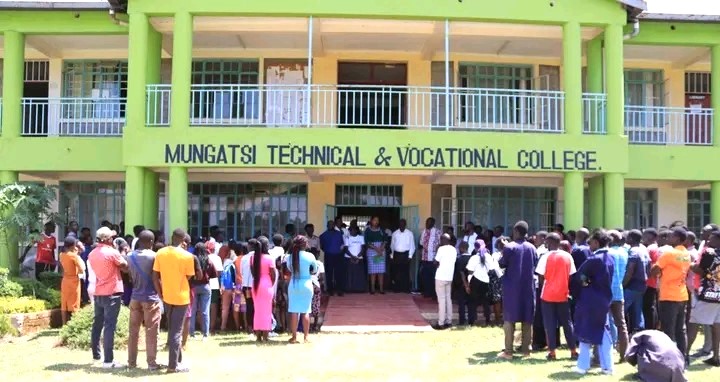Dear reader, it has been a sad season in some secondary schools in Kenya. I am writing about the spate of unrest and strikes; where ferocious flames of fire have razed down some schools. We hope the schools will get some bold Nehemiahs to re-build the walls and gates brought down by rude and riotous students.
Somewhat, unrest is a feeling of disturbance and dissatisfaction. Sometimes, it is an agitation leading to disorder. As an education consultant working and walking with several schools in over 40 counties, I can say in this essay, no school is totally immune to the sad state of unrest witnessed here and there. With a special focus on boarding schools, it is important for school administrators to empower and inspire student leaders as their eyes and ears.
Then, I think, schools should expand the bracket of student leadership. The obvious student leaders we all think about when this topic is broached are members of the student council; formerly known as prefects. Additionally, methinks, it is important for schools to recognise peer counsellors as student leaders. Likewise, schools should treat movement, clubs and societies officials as student leaders. Administrators who are keen to spread positive influence in schools should empower and inspire student leaders through proper training. Well-thought-out privileges and motivation; can also work wonders.
Actually, when we see students staging strikes or going on rampage here and there, we should never swagger with a holier-than-thou attitude or blow with delusion of grandeur; thinking that our schools are totally out of the woods. In fact, the state of disturbance and dissatisfaction causing chaos in schools can erupt like an active volcano anywhere, anytime. No wonder, eternal vigilance is important.
Ideally, disturbance and dissatisfaction in students can be caused by several issues both known and unknown. Some issues that cause chaos in schools happen when Principals and teachers decide to become unwise and insensitive in handling indiscipline cases. More so, in moments of exam-related tension, pressure and stress. Seat-of-the-pants sense is whispering to me that Principals who are averse to cheating in KCSE, are also finding it rough in some stations.
ALSO READ:
Varsity Don murdered, father injured in attack over land dispute in Homa Bay
As captains, it is tough to steer ships in schools where students believe in short cuts, which are wrong cuts. The truth remains: the shame of cheating is uglier than that of poor performance. Then, leadership lapse and bad blood between administrators are ticking time bombs in our schools. Through it all, some of the issues that lead to unrest escape the ken of school administrators. There is political interference and bad influence of meddlesome stakeholders. Some Principals are facing rejection in new stations.
Meaning, state of disturbance and dissatisfaction can happen when the Principal is transferred, and now there is a new sheriff in town. Even if change is good, sometimes, change is resisted because it causes disruption. More so, to those who believe in the status quo. No wonder, school stakeholders need serious sensitisation on change management. For change is inevitable. Change is good as rest.
Moreover, in the bid to arrest unrest in schools, Principals and teachers can work well with all sort of student leaders to prevent it. For there is the exigent need of schools being safe and secure zones; peaceful and conducive for their real reason of existence — teaching and learning. Everyone who is in touch with happenings in schools can feel the heartbeat. Due to sad episodes, the pulsation is faster. The schools’ heartbeats are drumbeats due to several issues that are open secrets. Several schools are experiencing cash-crunch. I attribute it to low payment of fees by parents due to the high cost of living. The government is also operating on a glacial pace when it comes to release of capitation to schools. Then, this year, there was no Form One admission. Somehow, through economies of scale related to high enrollment, huge Form One admissions and other sources of funding; assisted schools to stay afloat throughout the year.
Additionally, we can all node to the notion: When schools are financially-famished, every morning, Principals are mourning. Heads of Institutions are scratching tufts of hair on their heads to crack codes of feeding students, paying staff and providing curriculum-support materials. Somewhat, it is a chilling challenge, which is only known to those who know something about the expensive price leaders pay. In every edifice and office, some leaders sit on chairs strewn allover with thorns and thistles; causing dreadful discomfort and discomfiture. Their heads also wear crowns of crisis management. No wonder, in the distant past, through the perfect prose and poetry of William Shakespeare, we learnt: “Uneasy lies the head that wears the crown.”
Somehow, when waters are weltering with rage, tides are high, and times are tough; Principals seek solace and peace in wise words: When the going gets tough, the tough get going. Then, Principals also find hope and help in the wonderful words of Dr. Robert H. Schuller. Those who have pored over his heroic book know the carefully-crafted title of his page-turner: Tough Times Never Last, But Tough People Do. When money is scarce in schools, it behooves Principals to be prudent and to embark on austerity measures. Meaning, things may not be rosy as expected. In turn, staff and students will have to bear the brunt. In sure sense, this can be a recipe for unrest: state of disturbance and disruption. Undisciplined students go on rampage. Or stage strikes due to change in both quantity and quality of food. In an unfortunate twist of fate, some unprofessional staff members incite students to fan ferocious flames of fire. More so, when there is the general feeling of discomfort and discontent among some stakeholders.
Then, dear reader, I am weaving these words in third term while holed up at Serenity Fort Hotel in my peregrine speaking programme in the coastal counties. This is a point in time, where ministerial expectations are that the mood in schools should be solemn; with reduced social activities such as games and sports. There is no mid-term break to assist students rest and re-charge.
ALSO READ:
It is the term of shedloads of exams. Yet, teens in Form 2 and 3 may struggle to understand it. This is the term that Form 3 students should sit and write Form 4 Promotional or Entrance Exams. In term 3, Form 4 candidates also attempt several trials to assist them prepare to sit and write KCSE exams. The handwriting is on the wall: reduced social activities, absence of the brief mid-term break, Form 4 Promotional or Entrance Exams for Form 3 students, oodles of exams served in Form 4, high-pressure learning environment, compressed curriculum and tightening of the noose to enhance exam integrity; are brewing stiff chaos in several school pots.
So, what is the way forward? Principals and teachers should work well with student leaders to arrest the spate of unrest that hit schools. Firstly, get it right on constitution and composition of the Student Council. Ensure that the Student Council goes through proper training, tutelage and induction. So far, I hope we all know that the total reliance on electoral system has more demerits than merits. At the end of the day, it is not the best approach to get the cream of the crop of leaders among students. Instead, it will only give you populists interested on peddling negative influence in school. Advisedly, also make student leaders know, leadership is not about activism or confrontation of administrators. For such misleaders do not know that in their role as the bridge between students and administration, when the push comes to a shove, they should lean on the side of administration. Student leaders who are populists will incite other students to stage strikes or go on rampage. Or they will remain quiet; covering criminals conspiring to execute evil in school.
Consequently, I had also cited at the beginning of the writ, that it is important to recognise Peer Counsellors as student leaders. HoDs Guidance and counselling plus teacher-counsellors in that important department in charge of Learner-Support Programmes (LSPs) should ensure that they get the right student leaders on board to assist them guide students. They should also be taken through proper training to enhance their self-efficacy. More on student leadership, clubs, societies and movement officials should be empowered through proper training.
Therefore, when leaders of societies such as Christian Union (CU) are empowered by CU patrons, they can know the integral role they play when it comes to school safety. Practising Christians like the weaver of these words know, whatever happens in the physical, is just a manifestation of what is going on in the spiritual realm. Ephesians 6:10-18 Apostle Paul of Tarsus contends that we are not fighting against flesh and blood, but against the four super-natural evil empires — Principalities, powers, rulers of darkness and spiritual wickedness in high places. Meaning, students cannot just wake up one dark day and cause wanton waste; vandalise and raze down school property without a tinge of mercy. There are always diabolical forces at work when fire expresses its ire in schools, and in morbid moments, death dims the star of some students.
Finally, members of movements such as scouting and St. John’s Ambulance should also be made to know, their work is not just to shout and perambulate in schools. In fact, their patrons should ensure that schools get the right people to wear those brown and black uniforms. For sometimes, the movement is crowded by bad and rude students who cannot arrest unrest or assist in keeping schools safe and secure.
By Victor Ochieng’
The writer trains student leaders in schools. For invitations and cordial considerations, contact: vochieng.90@gmail.com. 0704420232
You can also follow our social media pages on Twitter: Education News KE and Facebook: Education News Newspaper for timely updates.
>>> Click here to stay up-to-date with trending regional stories
>>> Click here to read more informed opinions on the country’s education landscape






